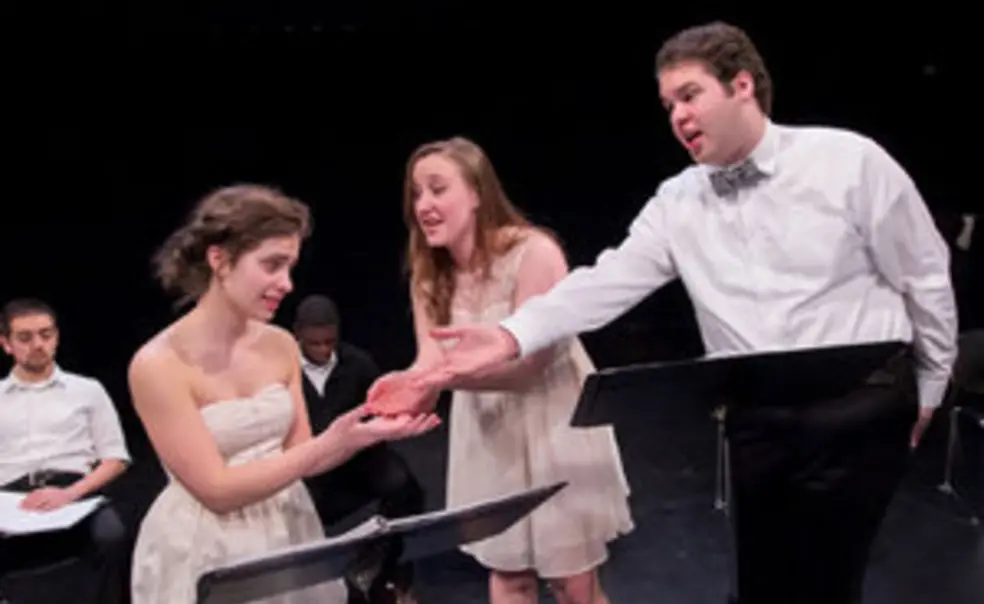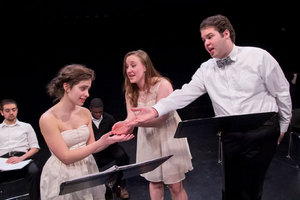Thesis musical examines gender neutrality, identity issues
By Cara McCollum â14Sandra Fong â13 sat helplessly in the audience as she watched her creation come to life. âI hope I remember to breathe; Iâm probably going to hold my breath âtil the end,â she excitedly whispered to a friend. By the end of Saturday night, she could breathe a sigh of relief after a run of three senior-thesis workshop performances went off without a hitch.
Twelve student performers sat in a semi-circle of chairs in the Marie and Edward Matthews â53 Acting Studio, their music stands poised between them and the audience. They wore black and white, but the topic they sang about took on a decidedly gray tone.It Takes a Village, the thesis collaboration between Fong and composer Emi Nakamura â13, tells the story of a character ambiguously named âM.â as he moves to the town of Standard, USA, and struggles to live a ânormalâ life â or, as normal of a life as one can lead being raised gender neutral. M. (played by Terrence Fraser â16), who wears dress-like tunics and enjoys both football and ballet, is confronted by the conservative citizens of Standard and pressured to conform to the stereotypes of his gender.
The topic of gender neutrality first piqued Fongâs interest two years ago when she read a news story about a family that had chosen to raise their child gender neutral, and was both surprised and saddened by the public outcry that ensued.
âI read news articles, memoirs, and even childrenâs books that dealt with gender identity. I became a constant reader of non-traditional parenting blogs,â says Fong, who wrote her junior paper on the subject as well.
âItâs about finding oneâs place in the world,â Fong says. âI was really looking to explore how we define others as well as ourselves. Is it our clothes, our sexuality, our jobs, our families, or something else entirely? Identity is so important, and yet itâs also so hard to define.â
As for what âM.â stands for, Fong hedges: âItâs actually still up in the air as we develop the second act. My composer would prefer I have an easily rhyme-able name, but Iâm toying with a few options⦠. Iâm keeping that decision close to the vest until perhaps the next workshop!â
Cara McCollum â14 is a contributor to PAWâs On the Campus column.
From left, Madeline Cohen '16, Gabriella Rizzo '13, and Gary Fox '13 perform a scene in "It Takes a Village," a thesis musical by Sandra Fong '13 and Emi Nakamura '13. (Photo: David Kelly Crow/Courtesy the Lewis Center for the Arts)
Cara McCollum â14 is a contributor to PAWâs On the Campus column.













No responses yet